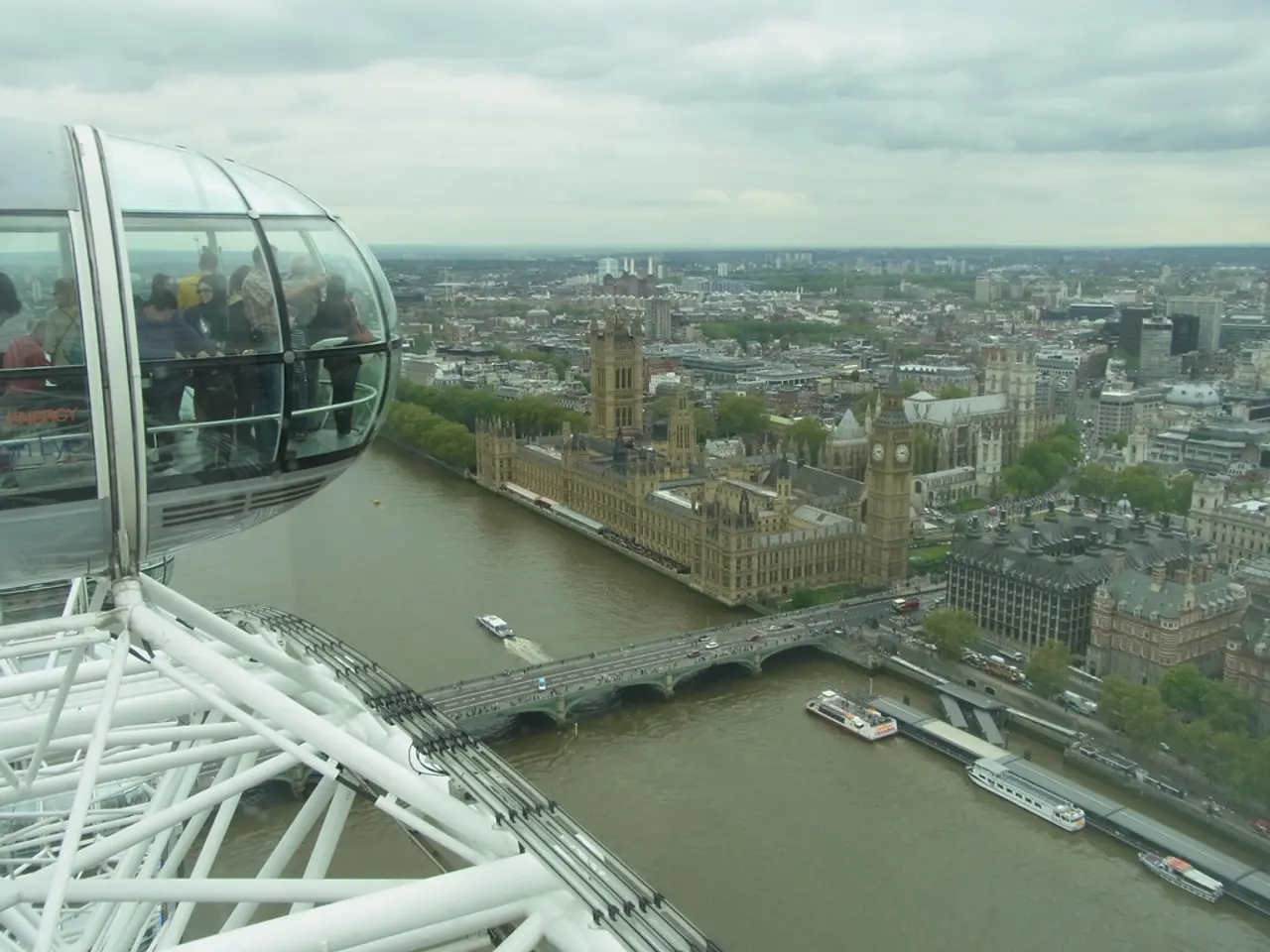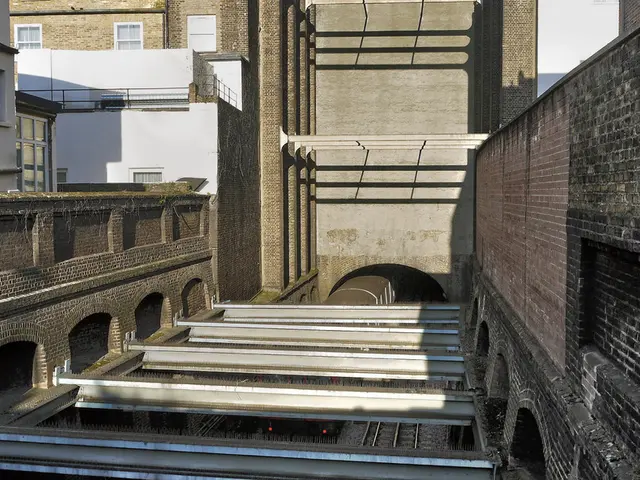UK House Price Declines May Spread Nationwide, Causing Widespread Concern
In the heart of London, a shift is underway as the ultra-rich opt for renting rather than buying mansions to avoid the increased stamp duty costs. The rise in stamp duty rates, effective from April 2025, is set to significantly increase transaction costs for homebuyers, investors, and landlords, potentially leading to a nationwide downturn in the property market.
The new stamp duty regime presents higher costs for buyers, with the tax-free threshold halved from £250,000 to £125,000. For instance, a homebuyer purchasing a property for £350,000 will now pay £7,500 in stamp duty, an increase of £2,500 compared to the previous rate of £5,000.
Investors and landlords face an even steeper burden, with those purchasing additional properties subject to higher rates. For a £350,000 property, stamp duty rises from £22,500 to a significantly higher amount under the new banded system, with surcharges up to 17% on portions above £1.5 million.
The increased costs may discourage buyers from moving or upgrading, contributing to lower transaction volumes. Already, property flipping has dropped to a 12-year low as higher stamp duty surcharges squeeze investor margins, making refurbishment and resale less profitable.
The government stands to benefit from these changes, with the collection of £14.1 billion in stamp duty in the 12 months to May 2025—a 20% increase year-on-year. However, the higher transaction costs could reduce demand and stall market growth.
The downturn in the prime London property market could potentially spread nationwide, given London's role as the engine of house price growth. As prices in the capital have rippled out to other regions, concerns about a broader downturn are growing.
For instance, the annual rent on a £20 million London property is approximately £570,000. Renting such a property for four years could cost less than paying the stamp duty alone. The stamp duty charge on a £20 million mansion in Belgravia or Mayfair is £2.3 million for a UK purchaser, and about £3.7 million for a non-resident buyer acquiring a second home in the city.
This trend is not unique to the mega-rich. More than a third of the money raised by stamp duty comes from property deals in London, and the changes have led to an increase in buyers negotiating price cuts to compensate for the extra tax. In central London locations, property prices are being slashed by up to 30% to attract foreign buyers.
Richard Donnell, head of research at Zoopla, has expressed concerns about the London property market, stating that 83% of buyers would pay stamp duty if they bought a home today, compared to 49% before April. Neil Hudson of the Built Place consultancy has observed the renting trend among the mega-rich in London.
The changes in stamp duty have had a significant impact, with more than 951,000 people now paying the stamp duty levy, a figure expected to rise sharply. As the ultra-rich continue to rent rather than buy, the question remains whether the downturn in the prime London property market will indeed spread across the country.
- The increased stamp duty costs under the new regime may lead investors to opt for mortgages and real-estate investments instead, as the high transaction costs could potentially make property purchases less profitable for them.
- Given the increasing popularity of renting over buying among the mega-rich in London, there could be a shift in the housing market towards increased demand for financing options, such as mortgages, to facilitate long-term rental investments in high-value properties.
- As the ultra-rich choose to rent rather than buy due to the higher stamp duty costs, finance institutions might witness a rise in mortgage applications as they seek to invest in the rapidly growing rental real-estate market, potentially influencing the overall financing landscape of the property market.




